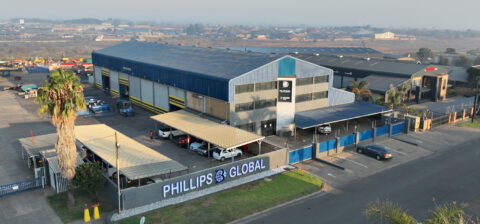Financial Mail Travel
Under Oxford’s Skin
It was late October, and University Parks, a green lung pressed against Oxford’s stone heart, should have been bleak and still.
Only dedicated dog-walkers, bundled against the cold, should have hurried along the verges of its sports fields, perhaps glancing up at a huddle of steaming rugby players preparing for a weekend game.
The trees that flanked the fields, and beyond them, the copses following the river, should have been hunched under grim skies. At their feet, the punts should have been moored, damp and abandoned.
The silence that comes before deep cold should have been broken only by the cawing of ravens.
But climate change sometimes gives even as it takes relentlessly away; and on this late October day, the afternoon was fading into radiant glory. Families and lovers walked and talked, peeling off jerseys and jackets for a last touch of the sublime, sinister warmth. The trees were green and tall, and full of birdsong. The sky was immense and gentle, melting into gold where the low sun headed for home.
Of frostbitten rugby players there was no sign. Instead, footballs and Frisbees passed each other in slow arcs. The only nod to formal rigour was a lacrosse match, the players galloping about like a boatload of underdressed entomologists trying to net an escaped moth.
The path that had led my wife and I through the Parks was bending away from the fields now, back towards the hedge beyond which busses rumbled and bicycle bells jingled. We slowed, and stopped, turning back to take in that green evening one last time. And that’s when we saw it.
At the end of the last field, near a pair of rugby posts, there stood a solitary white pole. At the top of the pole was a vertical hoop – imagine a netball net bent upwards by 90 degrees. Scuttling around near this setup, now and then hurling a large ball at the hoop, were a dozen or so young people with long sticks clenched between their thighs.
It couldn’t be. Could it? No, impossible. But it was.
They were playing quidditch, the aerial polo-basketball dreamed up by J.K. Rowling in the Harry Potter books.
The sticks weren’t just sticks. They were broomsticks. Magical, flying broomsticks. But instead of whooshing around in the air, the players were trundling about on University Parks, getting third-degree broom chafe.
It was, at first glance, extremely silly. And yet there was something undeniably beautiful in the youth and earnestness of the players. Their determination to transform fantasy into reality, even if it made no sense, was oddly moving. The staying power of their soft bits was magnificent.
Beautiful, moving, magnificent – and entirely absurd. The quintessence of Oxford.
It had never been a dream destination. My father had studied there in the early 1970s, and his matriculation photo had convinced me as a child that Oxford was a vast wall of ivy, in front of which stood a hundred young men – all men, then – with fantastically terrible haircuts.
Friends of ours, however, had recently moved there and had something literally priceless to South Africans travelling on rands: a spare bedroom for as long as we wanted it. Which is how we found ourselves stepping onto a train at Paddington, and stepping off into a fantasy.
Matthew Arnold wrote of “that sweet city with her dreaming spires”, but it’s not just the spires that weave the dream. The collective determination to make the fantasy real seeps and swirls like mist down every street and out of every window, animating the students who rush like fresh blood through the veins of those magnificent buildings, awing the tourists who gape at gargoyles or try on official Oxford sweaters in shops that look like the sort of place you might buy a magic wand.
And then there are the walls. My childhood impression was correct: parts of Oxford are simply ivy-covered walls, screening off the inner sanctum from riffraff like you and me, keeping those antique courtyards and gardens the secret province of the brightest and the best. Or just the richest: last year The Guardian calculated that the central university and its constellation of colleges control assets of £9 billion, or R170 billion. That’s enough to keep them in gargoyles for another thousand years.
Money, excellence, fakery, self-belief, self-delusion, bright-eyed optimism and withering snobbery: all come together in Oxford to create a place that is as imposing and deliberately opaque as a high mass in Latin. But Lord, it can be beautiful.
I’m not a good enough writer to describe our walk through the deer-haunted parkland of Magdalen College at dusk, or the stained-glass perfection of the choirboys singing evensong in its chapel. You didn’t have to be any kind of writer, however, to be affected by the apparently endless line of people reverently passing through an exhibition of the life and work of J.R.R. Tolkien. In Oxford, people don’t just read books: they worship them.
The historic centre pretends a kind of easy nonchalance, but Oxford is designed to awe. The weight of all that history somehow dismisses one’s connection to the modern world: even though I am a fairly confident resident of the 21st century, I found myself feeling at times like an 18th-century bumpkin.
Still, there are touches of reassuring banality revealing that, beyond the carefully curated fantasy, Oxford is still a university town with the inherent raggedness that one often finds in places ruled by young people. At The Trout, a famous pub in leafy, watery Wolvercote, we couldn’t order a drink because the fridges were broken. Maybe a coffee? Sorry, the coffee machine is broken. Anything else? No, not really… In the centre of town I’d felt adrift in the 1700s. Here, we were firmly in the 1950s.
And then, of course, there are the small pleasures of travel on a gentler timetable: the tiny cinema where nobody in the audience breathed a word or rustled a chip packet for 90 minutes (God bless the introverted English!); a bench and a pint and a view of trees; scrambled eggs on toast and a read of the paper in The Crypt, just your average, pleasant cafe in a building that’s been standing for 700 years…
The image of Oxford that stays with me most intensely, however, was something that happened almost five centuries years ago, if it happened at all.
The hamlet of Binsey is marked on most maps, but that is generous. It is an almost accidental destination, somewhere you reach by wandering up Port Meadow, touching in at The Perch for a refill, and then rambling up a narrow lane between sheep pastures towards a modest stone church, shaded by trees.
Gravestones stand in slightly haphazard rows, some still tended, others starting to surrender to lichen and time. It is all very peaceful and polite, an apparently unremarkable place at which one might arrive and then leave immediately.
But this would be a mistake, because just behind the last grave, that polite, settled, very English Christianity plunges quite literally into a time in which religion and pagan magic were often the same thing. Here, the earth opens. Stone steps lead down towards wet moss and darkness, and there, out of sight of the sun and trees above, is the well of Saint Frithuswith, or Frideswide as she is known here; an English princess and abbess who died at Binsey in 735AD and is now enshrined as the patron saint of Oxford University.
It was to this well, the story goes, that Henry VIII brought Catherine of Aragon, his first wife, in the hope that the magical waters of Frideswide’s well would help her conceive a male heir. They did not. Catherine was discarded. The Pope refused
a divorce. The rest is the history of the English reformation, and, arguably, the geopolitics of the last 500 years.
The shadows were lengthening. October was slipping inexorably into November. My hands, damp from Frideswide’s well, were cold. But I lingered there, imagining that royal procession, with its armoured horses walking through the meadow and rough carriages creaking up a muddy track towards this place; a queen dreaming of a baby and loving husband; a king perhaps already dreaming of Anne Boleyn and murder.
Money, power, faith and hope; all coming slowly up from the river in search of magic, determined to transform the dream of Oxford into something real.






 Sign-up and receive the Business Media MAGS newsletter OR SA Mining newsletter straight to your inbox.
Sign-up and receive the Business Media MAGS newsletter OR SA Mining newsletter straight to your inbox.